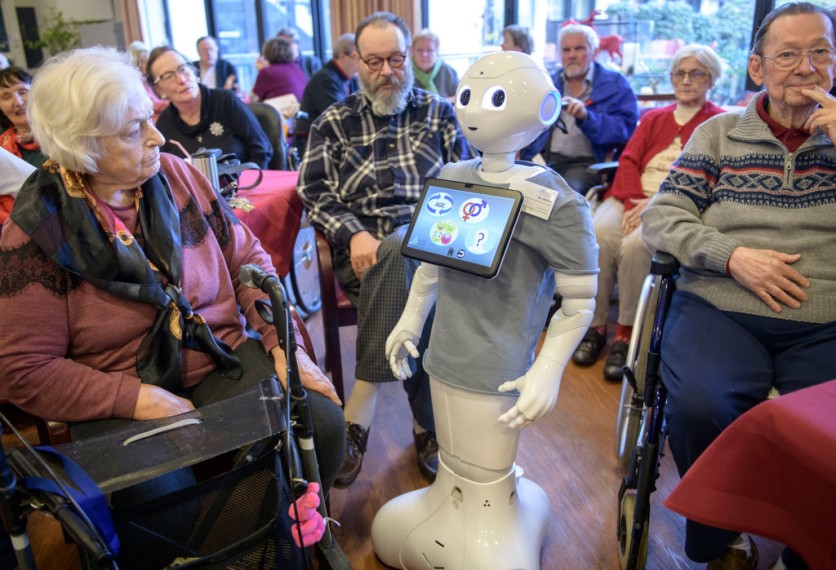A new robot named CARMEN (Cognitively Assistive Robot for Motivation and Neurorehabilitation) has been developed to assist individuals with mild cognitive impairment (MCI) in improving memory, attention, and executive functioning at home.
The robot was created by researchers at the University of California San Diego in collaboration with clinicians and individuals with MCI.

CARMEN: A Robot That Helps People With Mild Cognitive Impairment
CARMEN focuses on teaching compensatory cognitive strategies to enhance memory and executive function through interactive exercises and games.
Laurel Riek, a professor involved in the project, emphasized the team's commitment to creating practical solutions that resonate with the needs of individuals dealing with MCI.
The researchers explained that MCI represents a transitional stage between normal aging and more severe conditions like dementia, affecting cognitive functions such as memory and attention.
Approximately 20% of individuals over the age of 65 experience MCI, with a significant portion progressing to dementia each year. While pharmacological treatments have shown limited effectiveness in slowing down the progression, behavioral interventions have emerged as viable alternatives.
The robot was designed for its target users to use independently without constant supervision. Its functionality as a plug-and-play device with minimal maintenance requirements addresses practical concerns related to accessibility and reliability, particularly in environments with limited internet connectivity.
During its initial deployment in homes, CARMEN engaged participants in various cognitive tasks to improve daily functioning, which included establishing habitual places for essential items and managing schedules effectively.
Feedback from both users and clinicians involved in the study highlighted positive outcomes, with participants expressing a desire for continued interaction with the robot.
How Participants Responded to CARMEN Robot
The team discovered CARMEN boosted participants' confidence in applying cognitive strategies in everyday life. Participants also identified CARMEN's potential to achieve higher autonomy levels or be adapted for different uses.
The team noted that cognitively assistive robots (CARs) are promising for expanding clinical interventions into home settings. According to the researchers, given the diverse range of cognitive abilities and rehabilitation objectives, these systems need flexibility to promptly and accurately apply intervention content rooted in established clinical practices.
Additionally, certain aspects of CARMEN are open source, facilitating the deployment of adaptable home robots. Therefore, according to the researchers, CARMEN will empower the HRI community to implement effective interventions on robots, enhancing their accessibility and versatility.
The team's findings were published in the Proceedings of the 2024 ACM/IEEE International Conference on Human-Robot Interaction.
Related Article : Princeton Students' Viral Robot Dance with Boston Dynamics Sparks Debate on Robotics in Entertainment, Education


![Apple Watch Series 10 [GPS 42mm]](https://d.techtimes.com/en/full/453899/apple-watch-series-10-gps-42mm.jpg?w=184&h=103&f=9fb3c2ea2db928c663d1d2eadbcb3e52)


